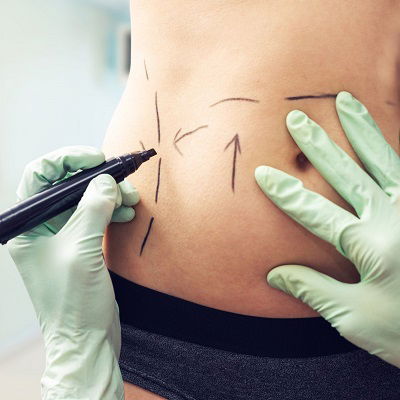Liposuction and Pregnancy: What to Know About Timing and Safety
Introduction
Liposuction is a popular cosmetic procedure designed to remove excess fat and sculpt the body. For many women, especially those who have recently given birth or are planning to expand their family, understanding the implications of liposuction in relation to pregnancy is crucial. This article explores the considerations, timing, and safety aspects of undergoing Liposuction in Muscat with pregnancy in mind.

Understanding Liposuction
Liposuction is a surgical technique used to remove fat deposits from various parts of the body, such as the abdomen, thighs, hips, and arms. The procedure involves the insertion of a thin tube, or cannula, through small incisions in the skin. The cannula is used to suction out excess fat, resulting in a more contoured body shape.
Common Types of Liposuction
- Tumescent Liposuction: Involves injecting a saline solution mixed with anesthesia into the fat before suctioning it out. This technique reduces blood loss and minimizes pain.
- Ultrasound-Assisted Liposuction (UAL): Uses ultrasound energy to liquefy fat cells before removal, which can make the suction process easier and more effective.
- Laser-Assisted Liposuction (LAL): Employs laser energy to melt fat cells, which are then removed through a cannula.
Timing Considerations for Liposuction
Timing is a critical factor when considering liposuction, especially in relation to pregnancy. Here are some important considerations:
Post-Pregnancy Timing
It’s generally advised to wait until you have fully recovered from childbirth before considering liposuction. Pregnancy and childbirth cause significant changes to a woman's body, including weight fluctuations and changes in skin elasticity. Ideal candidates for liposuction are usually those who have reached a stable weight and are not planning any future pregnancies.
Ideal Timeframe
- Postpartum Recovery: Most experts recommend waiting at least 6-12 months after giving birth before undergoing liposuction. This allows time for your body to return to its pre-pregnancy state and for any postpartum weight changes to stabilize.
- Stable Weight: It’s best to achieve a stable weight and maintain it for several months before considering liposuction. This helps ensure that the results are as expected and less likely to be affected by future weight changes.
Safety Concerns and Risks
While liposuction is generally considered safe, there are specific safety concerns related to undergoing the procedure before or during pregnancy.
Risks During Pregnancy
- Anesthesia and Medications: The anesthetic agents and medications used during liposuction might pose risks to the developing fetus. Hence, it is strongly recommended to avoid elective surgeries, including liposuction, during pregnancy.
- Potential Complications: Pregnancy causes physiological changes in the body that can impact the safety and effectiveness of liposuction. Increased blood volume and hormonal changes may influence healing and recovery.
Post-Surgery Risks
- Recovery Complications: Women who undergo liposuction might experience complications such as infections, swelling, and bruising. Proper post-surgical care is crucial for a smooth recovery.
- Impact on Future Pregnancies: While liposuction does not directly affect the ability to conceive or carry a pregnancy to term, changes in body contour and skin elasticity may impact how the body responds to subsequent pregnancies.
Recommendations for Future Pregnancies
If you are planning to have more children in the future, it is generally advisable to postpone liposuction until you have completed your family. Pregnancy can alter the results of liposuction, leading to changes in fat distribution and skin elasticity.
Post-Liposuction Pregnancy
If you become pregnant after undergoing liposuction, the results may be impacted. While liposuction removes fat cells from specific areas, new fat can still accumulate. Additionally, changes in body shape due to pregnancy might alter the aesthetic results of the liposuction procedure.
Conclusion
Liposuction can be an effective solution for body contouring, but timing and safety are crucial factors to consider, especially in relation to pregnancy. It is essential to wait until you have fully recovered from childbirth and have reached a stable weight before opting for the procedure. Additionally, ensuring that you are not planning future pregnancies can help maintain the results of the surgery. Always consult with a qualified and experienced plastic surgeon to discuss your goals, concerns, and the best timing for undergoing liposuction. Prioritizing your health and well-being will ensure that you make informed decisions that are right for you and your family.
